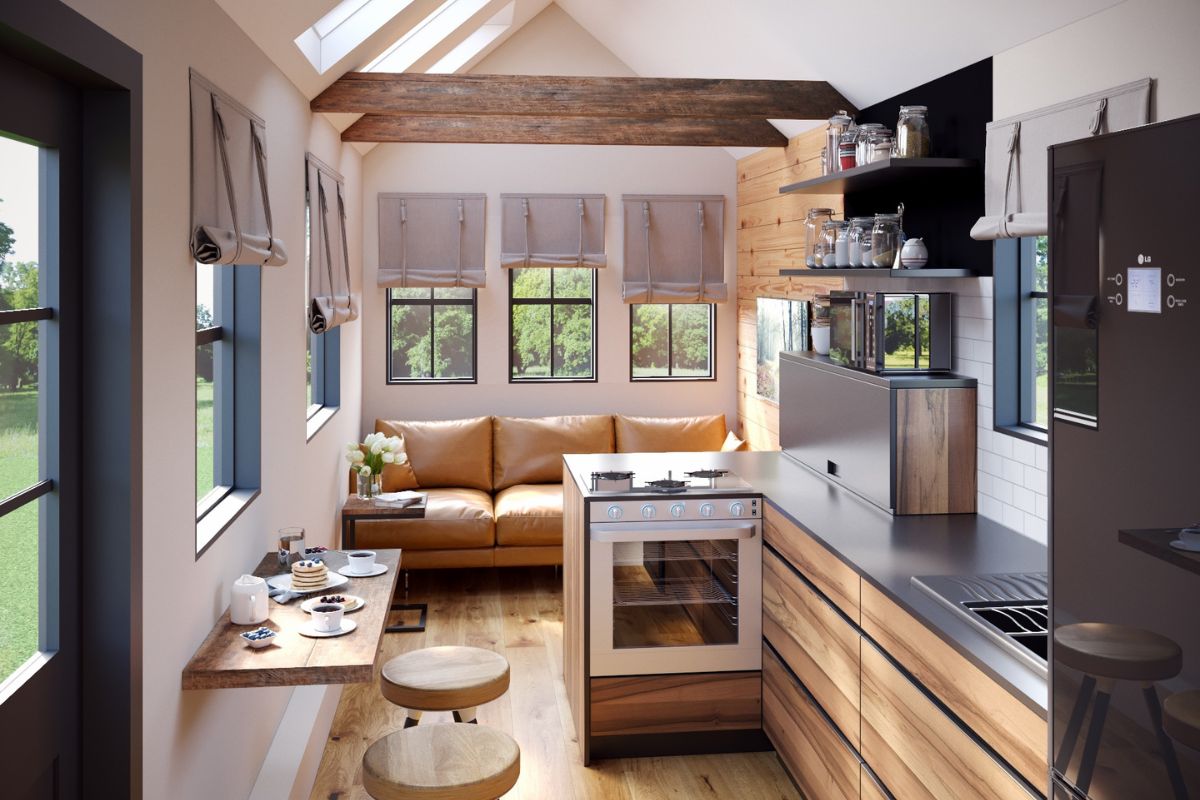How To Create A Realistic Homebuying Timeline Based On Your Financial Situation

Image Source: Canva
Buying a home is a major step in life, and making a realistic timeline you rely on, is a game changer both for success and peace of mind. The last thing you need is worrying about what comes next financially in such a delicate process.
If we’re to make any kind of assumptions based on previous trends, in 2023, the average price for a house in the U.S. was a staggering $535,800, marking an unwelcome 7.7% increase from 2021. It’s still early to tell of 2024 (even though it’s already August) but it would be a real surprise if prices were to fall.
Approximately 28 million Americans plan to buy a home in the next 12 months, reflecting the significant demand in the housing market.
Many potential buyers face challenges such as high mortgage rates and a competitive market, making financial preparedness literally the only way out.
We’ll endeavor to provide a structured approach to assess your finances, set achievable goals, and navigate the homebuying process effectively.
Getting a Bearing on Your Financial Situation
Taking a good honest look into the financial mirror can save you a lot headache down the line. This good honest look entails evaluating your current finances, setting realistic goals, and preparing for the very varied costs associated with homeownership.
So, let's break down the components of that good honest look.
The Importance of Being Financially Prepared
We cannot stress being financially prepared enough.
First thing's first, being prepared helps you set realistic expectations about what you can afford. This means evaluating your income, savings, and expenses to determine a budget for your new home you can actually live with like a decent human being.
The gold standard here is to keep your housing expenses (mortgage, taxes, and insurance) at or, ideally, below 28% of your gross monthly income. If all of this seems like a handful, that's because it indeed is a handful. Don't shy away from consulting a solid guide on how to financially prepare.
Second, saving for a down payment is a significant aspect of financial preparedness. Back in 2023, the median down payment was around 14%, which equates to $42,000 for a $300,000 home.
Many loan programs allow for lower down payments, sometimes as low as 3%, which is more manageable for many buyers.
A higher down payment can reduce your monthly payments and potentially eliminate the need for private mortgage insurance (PMI), which is typically required if your down payment is less than 20%.
Ensuring you have a good credit score is yet another critical factor. The higher credit score the better mortgage terms and lower interest rates you can get. Set yourself for a score of at least 620 to qualify for most conventional loans, but higher scores will get you more favorable rates.
Creating a Realistic Budget
Setting a realistic budget is the bread and butter of homebuying. A home affordability calculator is now your best friend since it can estimate how much you can afford based on your income, debts, and down payment. This will give you a price range to target when searching for homes.
Your budget needs to be more encompassing than just the price of the home, in fact, all known and potential costs need to go into it. And there will be a bunch of one-time expenses like the down payment and closing costs. Those fees range from 2% to 5% of the home’s purchase price (the higher the price of the home, the higher the rate).
Building an Emergency Fund
An emergency fund can be the literal difference between life and death. We know we sound dramatic, but we really feel you should be prepared for the unexpected in life. Here's the calculation, your basic emergency fund should cover at least three to six months of all living expenses, plus your mortgage payments.
We hope you won't need it, but consider it this way - there's no sweeter feeling when you figure out you can afford your family something nice in case you never need the emergency fund.
.jpeg)
Making a Realistic Homebuying Timeline
Now we’re going to go into the actual timeline of when to realistically expect the homebuying process to be complete. Obviously, the first step is being financially prepared which we’ve already covered above and won’t be giving a time estimate on. It takes as long as it takes and it shouldn’t be rushed. Let’s look at the other stages.
Getting Pre-Approved for a Mortgage
Arm yourself with financial documents and patience because you will need both. Your lender will require all manner of financial documentation and proof to determine how much they are willing to lend you. Those documents are usually pay stubs, bank statements and tax returns. This can take 3 to 6 months.
Engage a Real Estate Agent
This is your key to a good home in your price range. Instead of going at it alone you can have access to the experience and knowhow of a local real estate agent.
If your market is competitive, like markets are in big cities, an experienced real estate agent can get you a listing early which can make a big difference in the price.
House Hunting and Making an Offer
This stage will be great if you're all about the thrill of the hunt. Be prepared to check listings several times a day and jump on an opportunity once it comes up. Speaking of opportunities, it will be a feat to find a house that's in your price range, is open for sale and that you actually like.
It usually takes a bit of luck and luck, as we know, favors the bold and the people who check listings often.
Once you find the house that fits you, your real estate agent can send an offer. This involves drafting an offer letter outlining the price you are willing to pay, any contingencies, and other terms of the deal.
Choosing a house can take 6 months to 9 months and depends on how much you’re in a hurry. The rest of the process, once you’ve chosen a house, usually takes a few weeks.
Home Inspection and Appraisal
If you haven't seen Money Pit from 1986, now is the time. In case you’re wondering why we’re recommending a movie in this section check it out and all will be revealed.
A home inspection serves to help you identify problems with the house that make it not worth buying at all. Naturally, a house might have completely fixable problems and that's where your negotiation skills come into play.
You can ask for repairs or a price reduction form the seller and depending on the scope of the problems you can get a significant amount. If you find structural problems, run for the hills. Seriously, give Money Pit a look.
A professional home inspection costs around 300$ and takes a few days.
Closing Process
The final stage involves completing the loan processing and preparing for closing. You're not out of the woods yet, you might still need to submit additional documentation requested by the lender.
Some days before the actual closing, you should receive a Closing Disclosure form outlining the final terms and costs of your loan. Carefully review this document to ensure everything is correct and read the fine print several times. This usually takes a couple of weeks to complete.
Endnote
Buying a home involves meticulous financial planning and setting realistic timelines. Being financially prepared can significantly reduce stress and prevent unexpected surprises.
Staying informed about market trends and seeking professional advice can further streamline the process and enhance your decision-making capabilities.
On top of that, we heartily recommend you watch the Money Pit. On a lighter note, if you're prepared and know what you're doing =you can navigate the homebuying journey with confidence and secure a home that fits your needs and budget.







.jpg)

